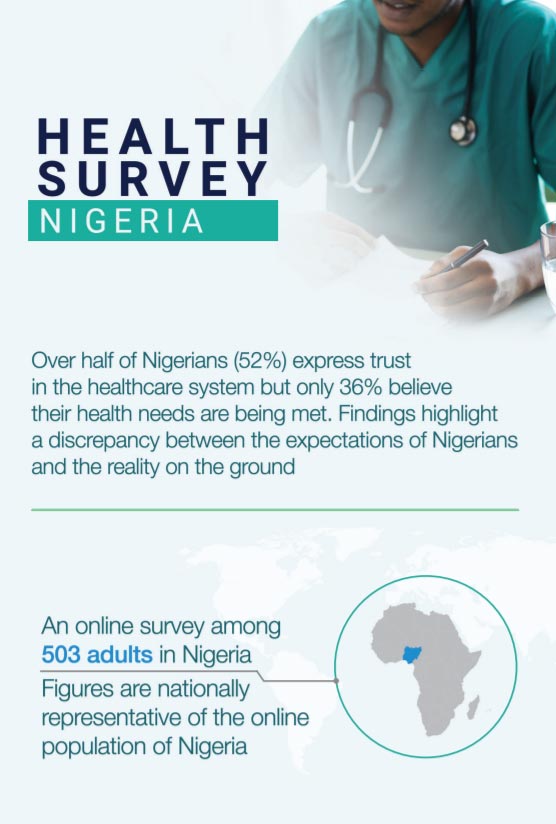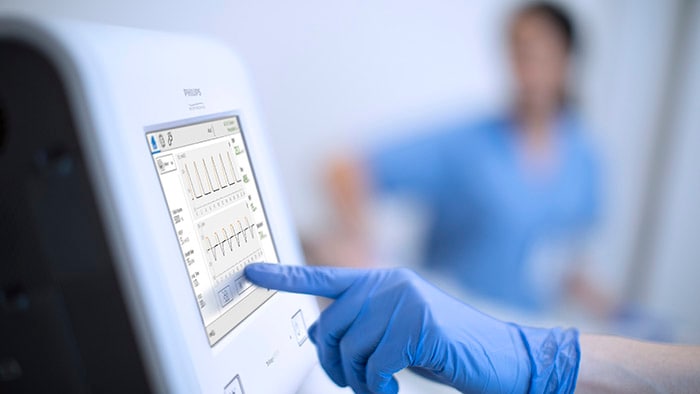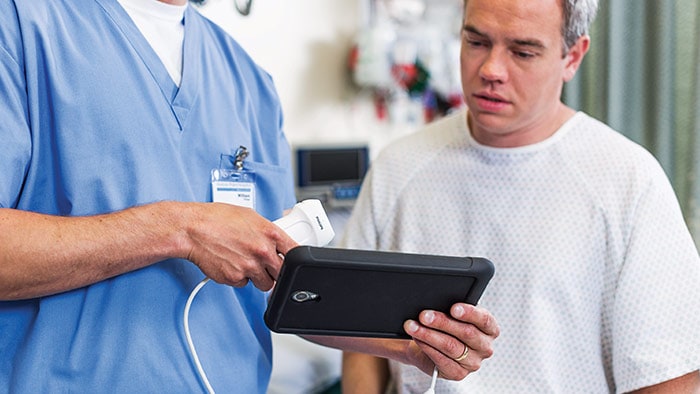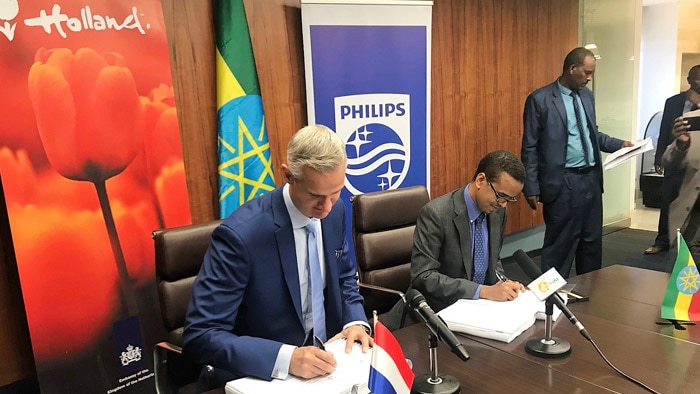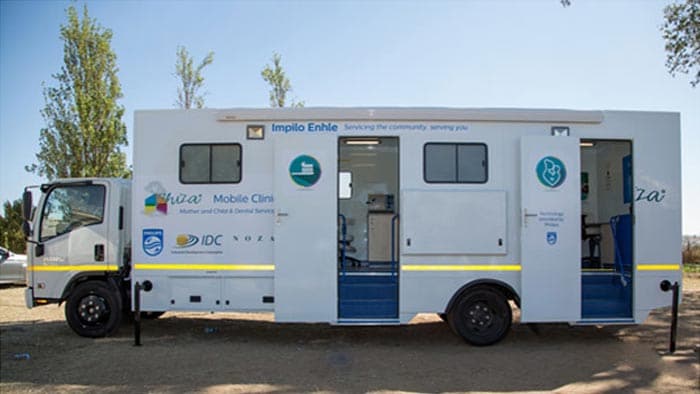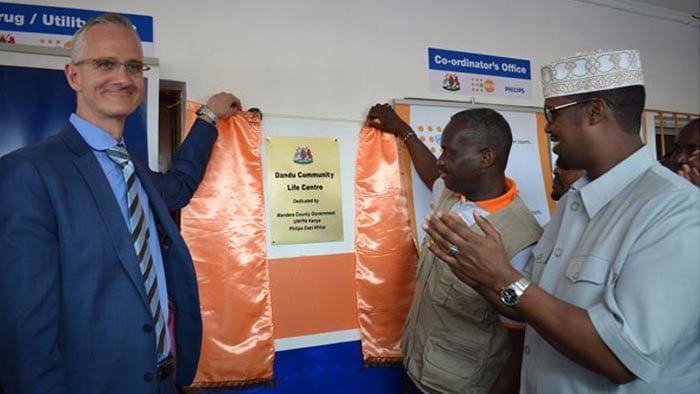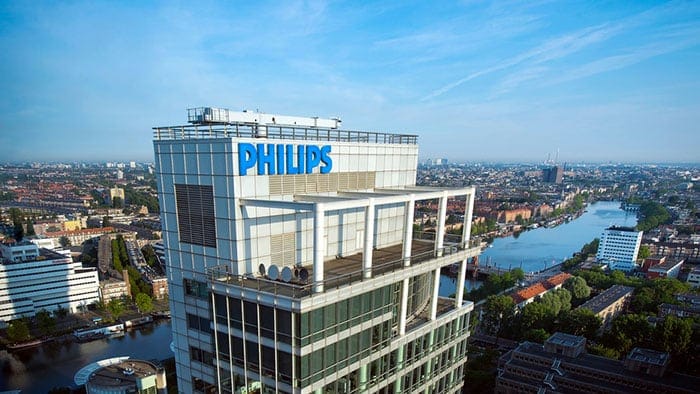May 17, 2018
Health Survey reveals only 36% of Nigerians’ believe their health needs are met by current healthcare system
Lagos, Nigeria - Royal Philips (NYSE: PHG, AEX: PHIA), a global leader in health technology, today released findings from a survey, aimed to understand what the ‘Future of Health’ might look like in Nigeria and any associated challenges. Data from over 500 Nigerians interviewed, shows that 52% trust the healthcare system, although only 36% feel that their healthcare needs are being met. This highlights a clear discrepancy between the expectations of Nigerians and the reality of the healthcare system, indicating inefficiencies and ample room for growth. Findings reveal that with about half of Nigerians leaning on hospital facilities for the most minor of ailments, there is a clear need for improved access to primary care practitioners, local health facilities, tracking health indicators and a wider availability of information about health, nutrition and fitness. This approach is further reinforced by the fact that a majority (65%) of Nigerians believe improved access to health facilities would make them more effective in managing their health, thus alleviating pressure on the healthcare system. Commenting on the findings, Jasper Westerink, Chief Executive Officer of Philips Africa said, “This study highlights the need for a greater focus on preventive healthcare for a sustainable health system, especially given the prevalence of lifestyle related diseases such as diabetes and cardiovascular disease. The results also reinforce the need for the national government to invest a significant percentage of its healthcare budget towards medical research, preventive care, acute care and general health education. This also suggests that more personalised consultations, more first-time right diagnosis, and timely treatments from healthcare professionals (HCPs) will further help reduce the burden on the healthcare industry in the country.” Westerink continues, “With these findings as a guiding light, we are engaging with all relevant stakeholders to drive the debate and ultimately improve the quality and cost effectiveness of healthcare services for future generations. We believe that sustainable healthcare development requires a system-wide approach, combining technology, capacity-building including training, service and maintenance, as well as long-term financing. To that end, we aim to expand access to quality and affordable healthcare across the country and compliment significant efforts to strengthen Nigeria’s growing health sector.”
Other key findings include:
Looking to the future, consumers are increasingly expecting to use digital technologies to control when, where and how they receive care services. By harnessing digital technologies in this way, the healthcare sector will increasingly be able to empower human judgement, free up clinician time and personalize care services to put control in the hands of patients. In order to increase the likelihood of connected care technology being used, training opportunities, informational resources such as databases of available technologies, and government subsidies to manage cost concerns, may be needed to improve health systems at a tertiary level. “Conversely, digitisation could additionally offer a breakthrough opportunity to improve the healthcare need of the Nigerian population by breaking down traditional cost structures,” said Westerink. “By connecting patients, and care providers with public health workers via mobile telecommunications on available cellular networks, we can fill critical gaps in primary care and have a lower cost base at the primary level of intervention.” These findings indicate that there is significant room for growth if investment is made towards the sector. “Health practitioners in Nigeria must tap in to the benefits of information technology in order to change the face of medical practice in the country and avoid being left out of global trends. Although there are good medical doctors in Nigeria, there is also a need to develop new ways of delivering healthcare like telemedicine for instance.” says Westerink. However, the data from this survey in itself is not enough; it is vital that the findings trigger robust debate at a local level in order to benchmark measurements and ultimately contribute to progress,” Westerink explained. The local survey results were released today in Lagos at ‘The Future of Health’ summit in association with Forbes and CNBC Africa, where eminent speakers shared their insights and case studies on “The State of Healthcare in Nigeria”.
About Royal Philips
Royal Philips (NYSE: PHG, AEX: PHIA) is a leading health technology company focused on improving people's health and enabling better outcomes across the health continuum from healthy living and prevention, to diagnosis, treatment and home care. Philips leverages advanced technology and deep clinical and consumer insights to deliver integrated solutions. Headquartered in the Netherlands, the company is a leader in diagnostic imaging, image-guided therapy, patient monitoring and health informatics, as well as in consumer health and home care. Philips' health technology portfolio generated 2017 sales of EUR 17.8 billion and employs approximately 74,000 employees with sales and services in more than 100 countries. News about Philips can be found at www.philips.com/newscenter.
Topics
Contacts

Radhika Choksey Head of Brand Communications and Digital Philips Africa Tel: +31 62525 9000
